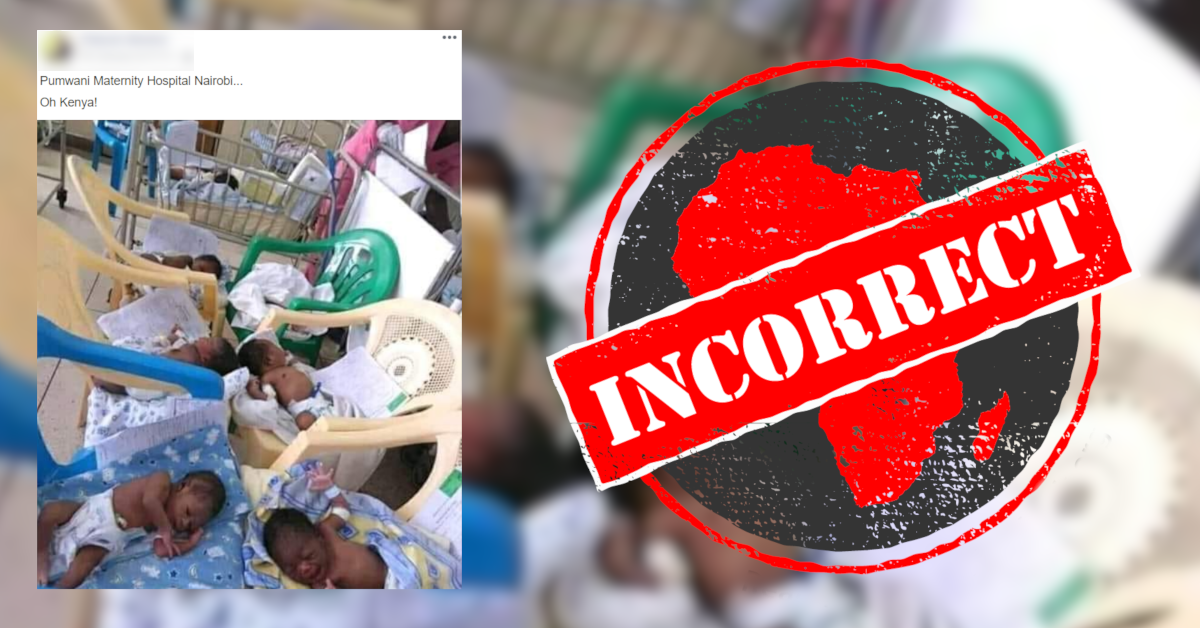A photo of six newborn babies lying on newspaper-covered plastic chairs has been shared on Facebook in Kenya.
The caption claims it shows the poor conditions at Pumwani Maternity Hospital in Nairobi, the country’s capital.
In the comments, Facebook users debate whether the photo is actually of Pumwani. What’s the truth here? We checked.

A Google reverse image search reveals the photo was taken in the neonatal intensive care unit of Kawempe Hospital in Kampala, Uganda, in August 2019.
The photo also raised concern among Ugandans on Facebook at the time, with many worried that the babies were at risk.
In a statement, the Ugandan health ministry said they were working with the hospital to find solutions for overcrowding.
The babies were later moved to a specialised women and neonatal hospital in Mulago, in northern Kampala.
On 26 August 2019, Africa Check debunked a Facebook post that used the same photo, this time claiming the hospital was in Nigeria.
But the photo is from Uganda, not Kenya or Nigeria. – Grace Gichuhi
The caption claims it shows the poor conditions at Pumwani Maternity Hospital in Nairobi, the country’s capital.
In the comments, Facebook users debate whether the photo is actually of Pumwani. What’s the truth here? We checked.

Photo from Uganda
A Google reverse image search reveals the photo was taken in the neonatal intensive care unit of Kawempe Hospital in Kampala, Uganda, in August 2019.
The photo also raised concern among Ugandans on Facebook at the time, with many worried that the babies were at risk.
In a statement, the Ugandan health ministry said they were working with the hospital to find solutions for overcrowding.
The babies were later moved to a specialised women and neonatal hospital in Mulago, in northern Kampala.
On 26 August 2019, Africa Check debunked a Facebook post that used the same photo, this time claiming the hospital was in Nigeria.
But the photo is from Uganda, not Kenya or Nigeria. – Grace Gichuhi
Republish our content for free
For publishers: what to do if your post is rated false
A fact-checker has rated your Facebook or Instagram post as “false”, “altered”, “partly false” or “missing context”. This could have serious consequences. What do you do?
Click on our guide for the steps you should follow.
Publishers guideAfrica Check teams up with Facebook
Africa Check is a partner in Meta's third-party fact-checking programme to help stop the spread of false information on social media.
The content we rate as “false” will be downgraded on Facebook and Instagram. This means fewer people will see it.
You can also help identify false information on Facebook. This guide explains how.


Add new comment